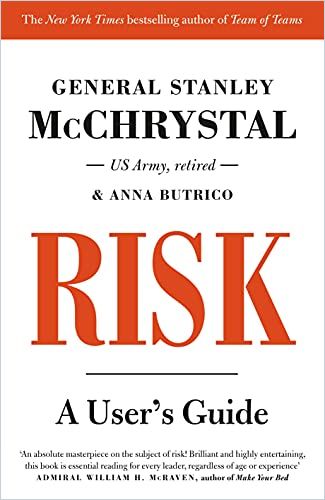Ret. General Stanley McChrystal details successful and unsuccessful strategic responses to pressure.

Judgment Under Pressure
In this breakdown of strategies and tactics for dealing with pressure, Retired US Army General Stanley McChrystal, a prolific leadership author, uses intriguing combat stories to illustrate how to prepare for risk and danger. The former commander of US forces in Afghanistan, he prioritizes careful analysis and measured action. McChrystal is also the author of Leaders, My Share of the Task, and Team of Teams.
Coping with Circumstances
In the spring of 1980, as the Iranian hostage crisis dragged on, US military leaders created a plan to extract American captives from Tehran. Operation Eagle Claw involved launching planes and helicopters from various places in the Middle East, including from an aircraft carrier in the Arabian Gulf. The two-night plan called for dropping soldiers in a remote desert on the first night. The next night, they would attack the US embassy, where Iranians held their American hostages. Then the commandos would take the hostages to a Tehran soccer stadium where helicopters would whisk them to freedom.
In today’s environment, it’s always a struggle to communicate risk. Understatement is ignored and exaggeration is discounted.Ret. General Stanley McChrystal
Operation Eagle Claw was high risk because each step depended on the perfect execution of the previous step. Any problem – like bad weather or strong Iranian resistance – could stop the mission. Weather turned out to be the culprit: a sandstorm hampered bringing in the soldiers. Then, a helicopter and cargo plane crashed, killing eight men and leaving the burned hull of a US aircraft in the desert. The commandos never reached Tehran.
Purposeful Storytelling
Narratives are the stories organizations and individuals tell themselves. A strong narrative can push performance to great heights, but if you tell a story that is not aligned with your purpose, you will sabotage its power. McChrystal alerts readers that the signs of such disconnection or misalignment can include a “say-do gap” between leaders’ words and their actions.
A shared narrative allows us to unite around a common purpose that is required to undertake effective action.Ret. General Stanley McChrystal
A story that contradicts both truth and purpose can be particularly harmful. For example, in the early days of the COVID pandemic, some American leaders dismissed the contagion as a hoax. This misdirected narrative undermined national efforts to mount an effective, coordinated response to the pandemic.
Judgment Calls
In 1983, Soviet military officer Stanislav Petrov ignored signals that the USSR’s recently deployed defense system falsely identified as a nuclear attack. The system indicated that the United States had launched five missiles at Soviet territory. When the system gave its warning, Petrov was supposed to alert the Russian high command, but he decided to wait a few minutes. When the USSR’s ground-based radars showed no incoming warheads, Petrov reported a technical malfunction rather than an American attack.
Petrov’s sound judgment forestalled nuclear war. During long minutes of uncertainty, Petrov relied on experience, logic, and intuition. He concluded that the United States would not start a nuclear war by launching only five missiles. Despite his heroic actions and world-saving discernment, his superiors scolded Petrov for not following orders.
The antidote to groupthink is diversity – including different perspectives into the decision-making process. Ret. General Stanley McChrystal
The United States’ disastrous Bay of Pigs invasion of Cuba in April 1961 gave rise to the term: “groupthink,” shorthand for the dangerous practice of adopting a collective point of view and brooking no dissent. The objective of the Bay of Pigs operation was to spark a mass uprising in Cuba to depose Fidel Castro. Many military leaders harbored misgivings about it, but they failed to share their doubts with President John F. Kennedy. Given that experience, Kennedy proved unwilling to defer to his military advisors when the Cuban Missile Crisis erupted in October 1962.
“Smooth is Fast”
Special Forces soldiers like to say: “Slow is smooth, smooth is fast,” because taking your time results in fewer mistakes and produces better, faster results. German race car driver Michael Schumacher employed this seemingly backward logic to win the 1998 Hungarian Grand Prix. In the qualifying laps, his Ferrari finished behind two McLarens; the track offered few opportunities to overtake them. Schumacher’s team came up with a novel strategy: Make three pit stops instead of the standard two.
Schumacher’s team believed he could gain about a second per lap by carrying less fuel in his tank. His shorter pit stops enabled him to pull out of the pits ahead of the McLarens. Schumacher’s Ferrari built a sufficient lead to keep him ahead even with his third pit stop.
Check Your Assumptions
Before you make a decision, run an “Assumptions Check” to ferret out problematic conclusions. Examine your thinking about your market, consumer preferences, strengths and weaknesses, and other important aspects of your situation.Assess your financial position and business strengths regularly to screen for potential problems. Identify metrics that help define your business and career and monitor the results.
As McChrystal explains, any large organization succeeds or fails based on its overall alignment of risk, not on one unit’s results. Running a gap analysis can help your organization spot potential pitfalls and resolve them.
Prepare for Crises
Speed is of the essence during a crisis. When a sudden threat emerges, rapidly gather feedback from any teams or employees in a position to offer insight.
Routinely check and improve your communications mechanisms – before you face a major threat. This became critical on September 11, 2001. During and after the terrorist attacks, New York City’s firefighters, dispatchers, and 911 operators couldn’t communicate quickly and effectively with one another.
Officials also learned later that federal agencies had information that could have revealed the attackers’ preparations. Because these agencies didn’t coherently share what they knew, an attack that could have been predicted by effective communication took the United States by surprise.
Adaptability connotes both the willingness and the ability to change.Ret. General Stanley McChrystal
Before a risky situation or a crisis occurs, McChrystal advises, make a habit of conducting regular pre-mortems to probe for weaknesses and potential causes of failure. Bring in an external party who can test your organization’s defenses. Seek to discover your vulnerabilities and weaknesses in simulation rather than real life. Perform this step in the risk-management process after you create a plan, but well before you execute it. If you follow this sequence, weaknesses will emerge while you still have time to abandon the plan or fix its deficiencies.
Telling Anecdotes
General Stanley McChrystal, remarkably, comes across as humble, bookish, and analytical. In any situation, whether during combat or even the Olympics, he argues that wise leaders should weigh all points of view and welcome dissenting opinions.He regards the Bay of Pigs and Operation Eagle Claw as synonymous with great-power hubris. McChrystal argues that double-checking your information and never acting in haste will always benefit your organization. His advice may not be revolutionary, but his slightly stilted, military prose is easy to read, and he offers telling anecdotes to illustrate his leadership lessons.














